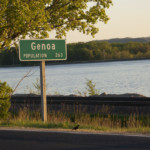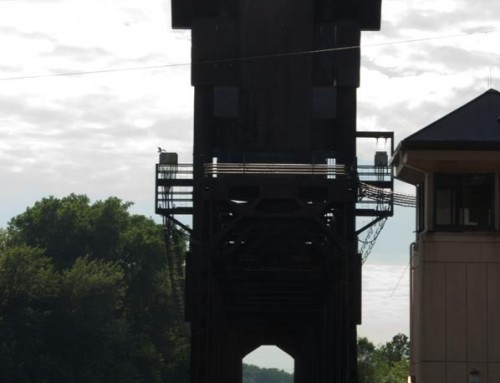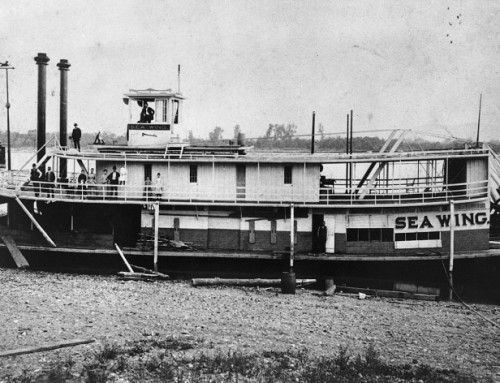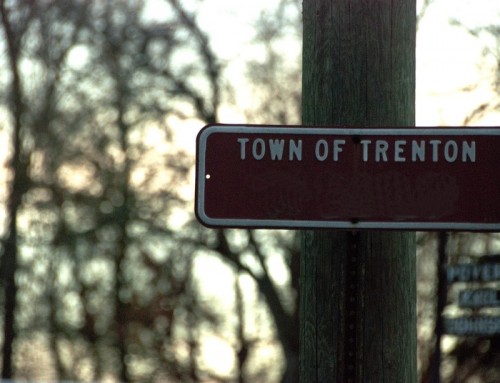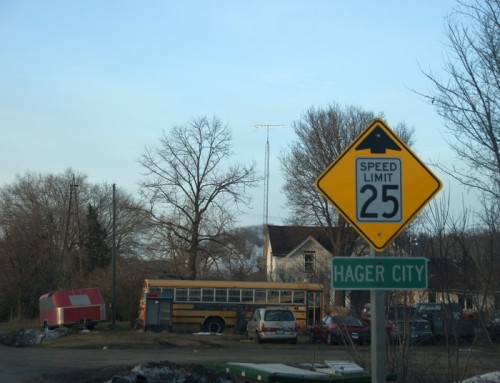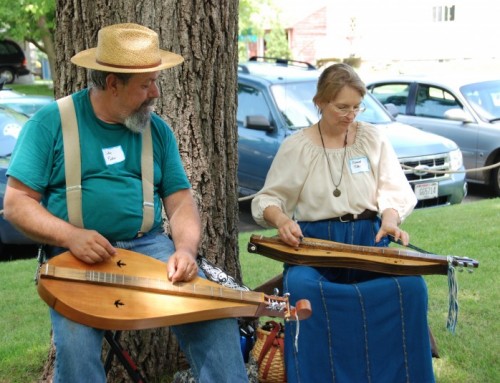Introduction
Genoa is a rarity in the US: a rural village with a strong Italian identity. Although that identity may be somewhat less salient today, as you explore the immediate area you will encounter plenty of tangible reminders of it.
Visitor Information
If you have questions about Genoa, stop at the Captain Hook Bait Shop to get them answered (108 Main St.; 608.689.2800).
History
A village called Genoa founded by families with names like Starlochi, Gilardi, Buzzetti, Fanetti, and Francoli obviously has a strong connection to Italy, although it didn’t start out that way. Initially known as Hasting’s Landing (for David Hastings) and platted in 1854 as Bad Axe City, the village’s origins began in 1853 with the purchase of 296 acres in Vernon County by Guiseppe Monti, who left northern Illinois to find a location for a new settlement for Italian/Swiss immigrants unhappy with conditions in Galena. Like many of his compatriots Monti’s family was grew up in Switzerland near the Italian border; one of his parents was Italian and one was Swiss. The Monti family had migrated from New York City via Cincinnati, St. Louis, and Galena before settling in Wisconsin. In 1868, the village’s predominantly Italian residents changed the town’s name to Genoa in honor of the hometown of Christopher Columbus.
Genoa had a busy steamboat landing for a while and developed the typical river town industries: hotels (room and board at the Monti Hotel in 1900 cost $3.50/week and included breakfast), a limestone factory, a fishery, the railroad. A pearl one inch in diameter was reportedly found near Genoa and later ended up as part of the British Crown Jewels.
Just for fun, here are a few diary entries from Genoa’s St. Charles School:
- October 14, 1915: “Still one barefoot boy in school.”
- January 15, 1918: “School closed today at 10 o’clock because of diphtheria. School closed four days.”
- February 1, 1918: “40 below zero today”
- January 24, 1919: “It has been above 50 degrees nearly every noon this week”
- January 28, 1919: “Willie Monti was seen wearing a white summer hat yesterday. Carl Guscetti killed a mosquito Sunday.”
The construction of Lock and Dam 8 in the 1930s was a boon for a few years, especially for taverns and room rentals. Genoa has also benefited from the energy industry. A coal-burning power plant was built in 1940 and the first nuclear-power plant in Wisconsin went up from 1962–66 (it closed in 1987); a steam plant was built in 1966–69. Today, many Genoa residents commute to jobs elsewhere, especially in La Crosse, and tourism is among the village’s biggest industries.
Exploring the Area
Lock and Dam 8 (608.689.2625) was completed in 1938 and overhauled from 1989 to 2003. The lock has a maximum lift of 11 feet; the dam is 934 feet long, but it connects to an earthen dam that runs another 17,000 feet. There is an observation platform where you can watch boats locking through.
Parks Along the Mississippi River
The Old Settlers Park Scenic Overlook (Spring Coulee Rd.) has good view of the valley, and better yet, I suppose, you can drive virtually all the way to the top. The road is open from roughly Memorial Day to Labor Day, but you can park on the road below and walk up any time.
Getting on the River
If you want to fish but forgot your boat, don’t fret: head to Clements Fishing Barge (below Lock and Dam 8; 608.689.2800). Park at the lot just south of the power plant, walk across the highway (carefully), and raise the orange flag; a boat will come get you. Boats usually run on the hour but will make a special trip to get you, if needed. Just bring a fishing license, a fishing pole, tackle, and bait.
Entertainment and Events
Festivals
In late May, fishing enthusiasts flock to the village for the Genoa Lions Walleye Fishing Tournament (608.457.2407), which gives you the chance to measure your skills against the best, if that’s what you’re into.
**Looking for more places to visit along the Mississippi River? Check out Road Tripping Along the Great River Road, Vol. 1. Click the link above for more. Disclosure: This website may be compensated for linking to other sites or for sales of products we link to.
Where to Sleep
Budget
If you just want a cheap bed to crash in and aren’t into amenities like a private bathroom or cable TV, check out Rudy’s Bar and Hotel (608 Main St.; 608.689.2994). There are just six rooms, all above a bar, and they are about as basic (and cheap) as they come, but are clean and well-kept; room #9 is the biggest, with two double beds and a sofa.
The Genoa Motel (708 Water St.; 608.624.3624) is another small place, having just four units. The two motel rooms are small and simple but clean and each has a small fridge, microwave, and coffee pot. The apartment, in a Civil War-era building, has one bedroom plus a loft with a queen bed and two twin beds, cable TV, full kitchen and two bathrooms. The fourth unit is an apartment with a queen bed, two twin beds, fridge, and microwave.
Cabins
The Captain’s Quarters (108 Main St.; 608.689.2800) looks like a converted garage from the outside, which it may be, but inside it feels like a cozy place to call home for a few days. The cabin has one bedroom with a queen bed plus bunk beds in another room, with a full kitchen and a full-size bathroom; you also get to use the charcoal grill.
Resources
Post Office: 501 Main St.; 608.689.2478.
Community-supported writing
If you like the content at the Mississippi Valley Traveler, please consider showing your support by making a one-time contribution or by subscribing through Patreon. Book sales don’t fully cover my costs, and I don’t have deep corporate pockets bankrolling my work. I’m a freelance writer bringing you stories about life along the Mississippi River. I need your help to keep this going. Every dollar you contribute makes it possible for me to continue sharing stories about America’s Greatest River!
©Dean Klinkenberg, 2024, 2021, 2018,2013,2011
